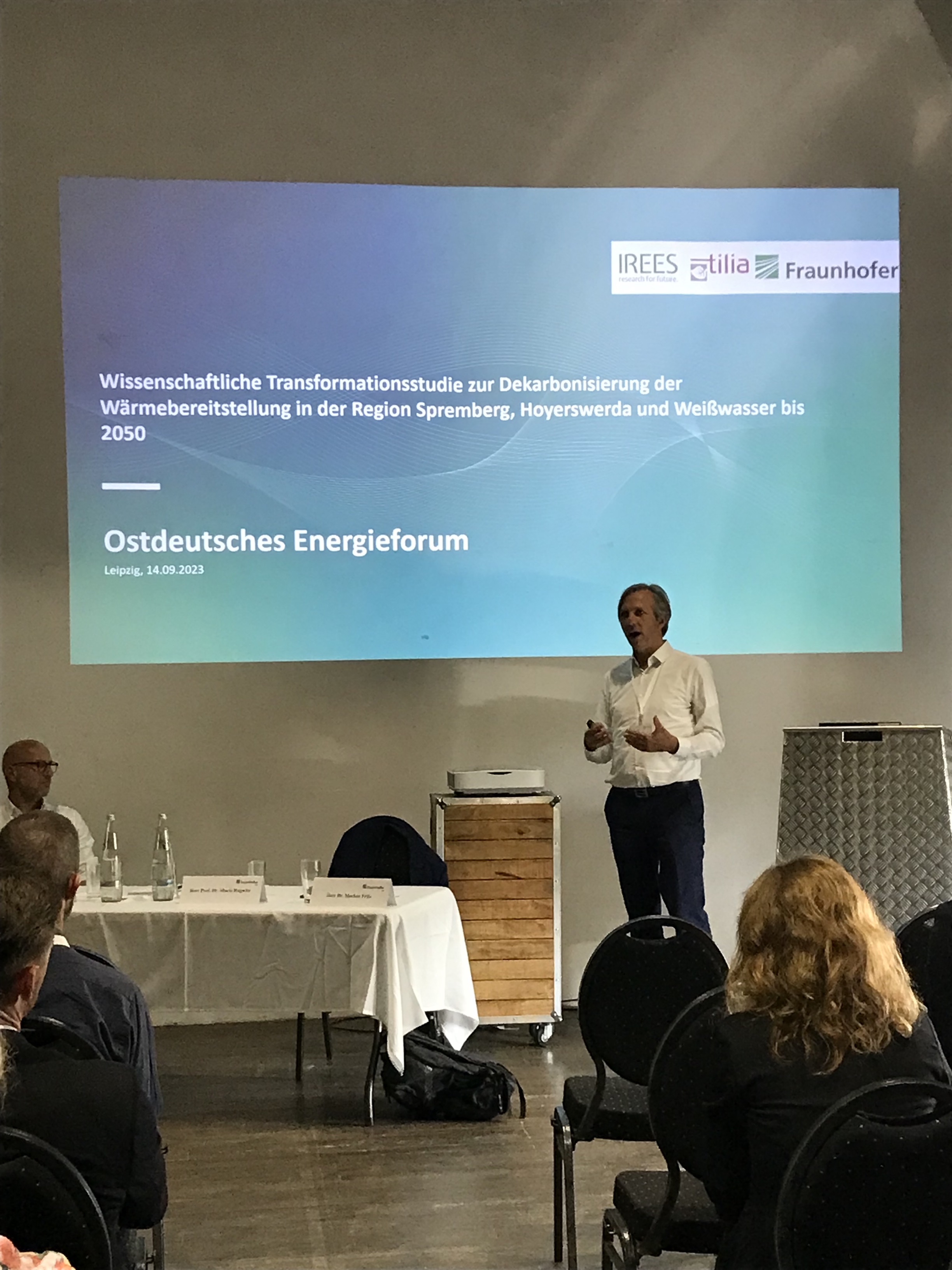How do we achieve the heat transiton?

This year's East German Energy Forum took place on September 13 and 14 under the central theme »Energy transition between politics, populism and planning approval procedures - where do we stand?« The forum offered experts and decision-makers from science, business and politics a platform for exchange on current developments and challenges in the field of energy transition. CINES experts were actively involved, especially on the topic of the heat transition.
In the discussion session »Transformation to green heat - How do we achieve sustainable heat supply?«, Prof. Dr. Mario Ragwitz, scientific director of CINES and director of Fraunhofer IEG, gave a fact check. He emphasized that the development and expansion of energy infrastructures will play an important role in the transformation to climate neutrality and that all stakeholders involved must work together and set the course for the heat transition at an early stage.
As part of the East German Energy Forum, Fraunhofer IEG organized a side event entitled »The heat transformation in Lusatia as a blueprint for Germany?«. The focus was on the »Transformation Study on the Decarbonization of Heat Supply in the Region of Hoyerswerda, Weißwasser and Spremberg«, which was prepared by Fraunhofer IEG and Fraunhofer ISI together with other partners under assignment of the district heating suppliers of the cities of Hoyerswerda, Weißwasser and Spremberg. The aim of the study was to jointly develop solutions for a feasible, ecological, socially acceptable, economical and secure energy supply in the region. The results of the study were presented at the side event and discussed in the panel. CINES colleagues Dr. Markus Fritz, research associate at Fraunhofer ISI, and Prof. Dr. Mario Ragwitz discussed the requirements of the municipal heat transition with other experts. In particular, they positively emphasized the innovative solutions presented in the study and the fact that Lusatia can play a pioneering role in the decarbonization of coal regions.
 Cluster of Excellence Integrated Energy Systems
Cluster of Excellence Integrated Energy Systems